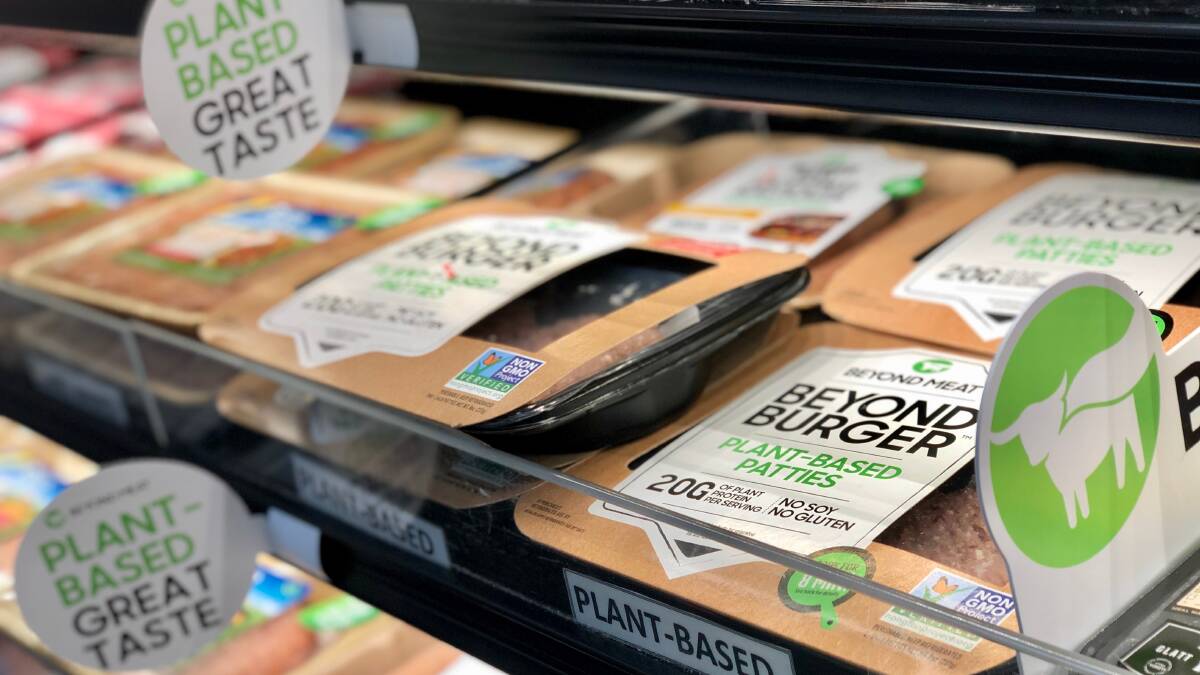
A Senate inquiry is curently asking whether the word "meat" should be removed from labelling of plant-based products marketed to vegetarians and vegans. Queensland senator and former butcher Susan McDonald announced the inquiry at an event for the Parliamentary Friends of Red Meat advocacy group. McDonald believes the word "meat" should only be used for the edible flesh of dead animals.
Subscribe now for unlimited access.
or signup to continue reading
Attempts to pin down the meanings of words go against the natural order of language. As with all words, the meaning of "meat" is continually evolving. In Old English, the word referred to "food" in general, and has since specialised. And as with all words, "meat" isn't limited to a single meaning anyway. Today, the word refers not only to animal flesh, but also to the edible part of a fruit or a nut, and the "meat" of a story or argument, among other things. Still, meat industry advocates want to limit the word's usage.
One reason, they argue, is that using the word "meat" for plant-based food infringes on the "intellectual property" of meat producers. But intellectual property applies to creative inventions, not to things in the public domain like everyday words in the English language. The word "meat" isn't a trademark or a proper name. No individual or corporation invented it, and nobody has a right to claim ownership. Everyday words are collective property. The community determines what words mean by how they are used in practice. If changes in people's usage have broadened the meaning of "meat" to include plant-based alternatives, then people are free to lament such a change but there is little they can do to stop it.
A second claim is that the label "plant-based meat" will cause consumer confusion. But most words have multiple meanings, and we cope perfectly well. The possibility of mistaking plant-based meat for meat is about as likely as mistaking a sea horse for a horse, or a spin doctor for a doctor. Plant-based meat is labelled clearly and unambiguously, precisely because it is marketed specifically to people who do not want to eat animal products.
A different argument from the meat industry is that consumers might be misled into thinking that plant-based meat is healthy, when it may in fact be highly processed and nutritionally inferior to the animal product. That may be so if one compares a low-grade vegan product to a fresh, lean steak. But of course the word "meat" also covers highly processed animal products - from hot dogs to corned beef - that are so bad for you the Cancer Council of Australia recommends avoiding them entirely. Simply having the word "meat" on the label carries no information about the quality or nutritional content of the food in question.
READ MORE:
As with all food, consumers need to be mindful of what they're eating - and this appears to be the opposite of what the meat industry really wants. A heightened interest in what we eat is the very reason consumers are turning away from animal products in droves: a recent Food Frontier/Deloitte report showed that Australian plant-based meat sales rose 48 per cent in the year to June 2020, with manufacturing revenues doubling from $35 million to nearly $70 million.
Consider this line from Senator McDonald's remarks: "Forget the ethics of eating animal products - this is about protecting a highly valuable industry and also providing a clear distinction between the real thing and the alternatives, so consumers know exactly what they're getting." On the one hand, McDonald's honesty is refreshing: she entreats us to "forget the ethics" in relation to what is arguably one of the most significant moral shifts happening in modern society, the shift away from supporting factory farming.
On the other hand, the idea that the meat industry wants consumers to be fully informed about what they're getting doesn't square with their efforts to deny the public full knowledge of their operations. When the ABC's 7.30 wanted to air video recordings of the lawful possum-killing operations at Lenah Game Meats in Tasmania, that business took the ABC all the way to the High Court of Australia in a bid not to let consumers know "exactly what they're getting". They argued that animal slaughtering operations, while lawful, should remain hidden from public view. The meat industry wants consumers to know what they're getting - except when it's bad for business.
This campaign shows an industry in panic mode, on the defensive in a rapidly changing world. The truth is that it wouldn't matter if the word "meat" were banned from plant-based food packaging. It won't reverse the tide of public sentiment that industrial meat production has unacceptable costs to our health, to animals, and to our environment. The industry's quibbling over words on a label looks like the arranging of deck chairs on a sinking ship.
- Nick Enfield is a professor of linguistics at the University of Sydney.

